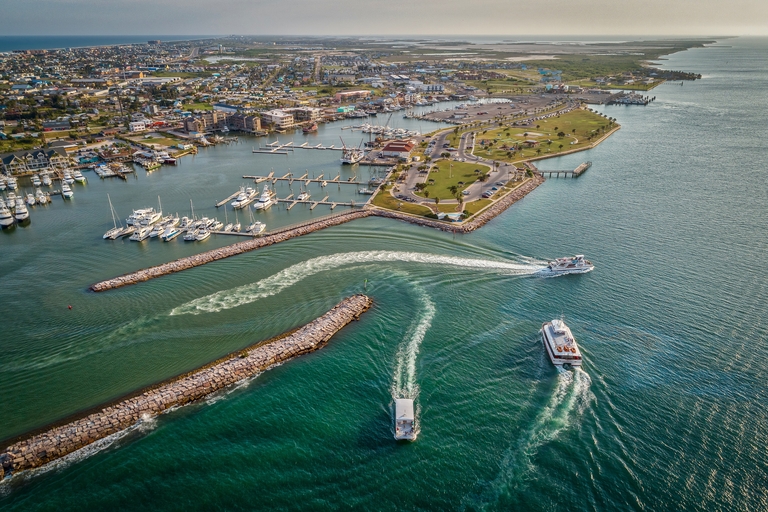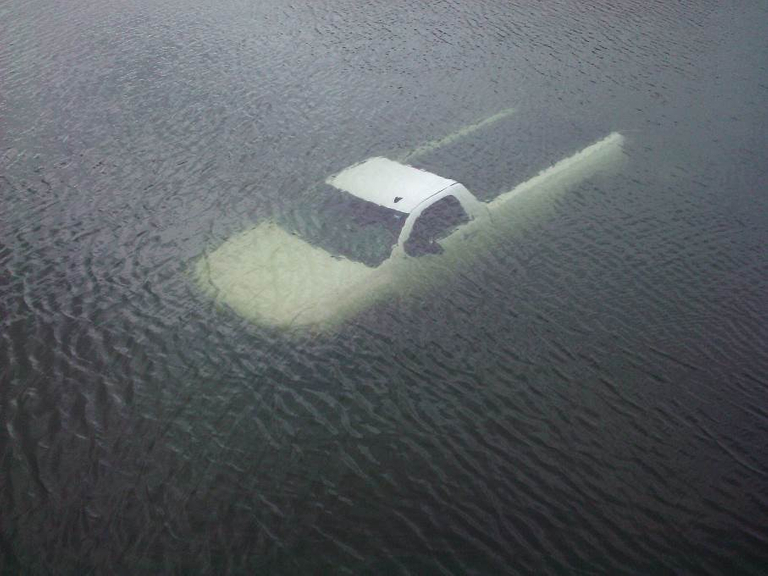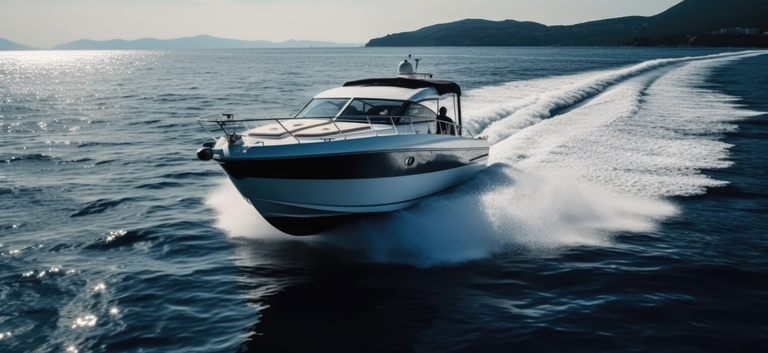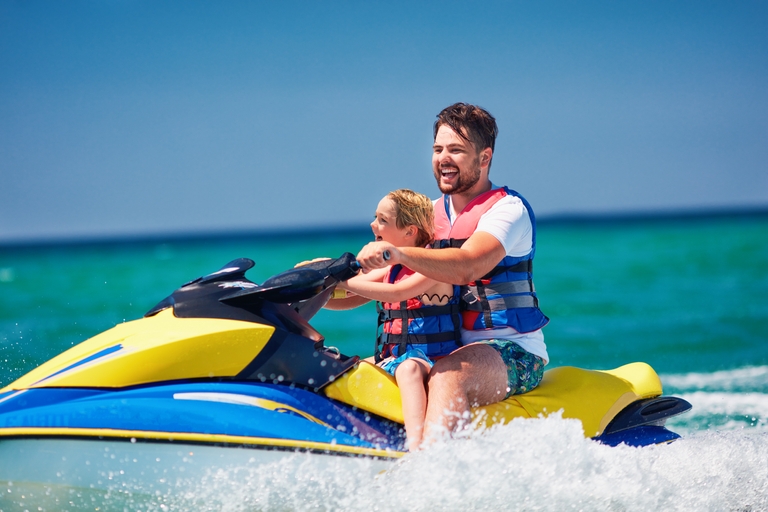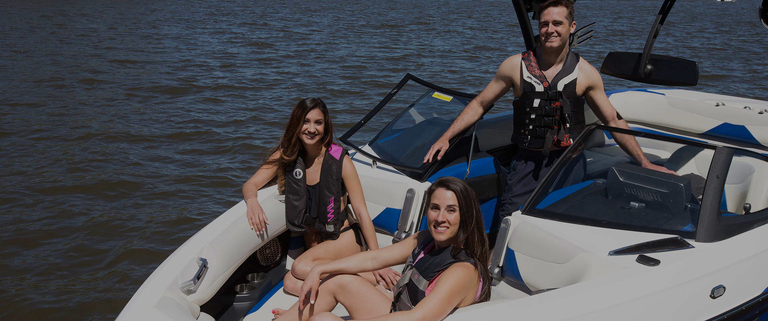Do You Need Boat Insurance? Answers to the Top 9 Questions

If you plan on purchasing a powerboat or a sailboat in the coming months, there's a good chance you're also looking into boat insurance.
If this is the case, you likely have questions about boat insurance companies, what type of insurance you need, and whether you need additional coverage.
Well, you came to the right place! Protecting your boat (and boaters) with a quality insurance policy is essential to safe boating. So, in this resource, you'll find answers to the top nine most frequently asked questions about boat insurance.

1. Do You Need Boat Insurance?
Insuring your boat is only required in a few states, and for one of these states, it's only needed for boats with engines that produce more than 50 horsepower.
There are additional insurance requirements in some states for boaters that meet specific criteria, which can always change. So, before taking our word for it, verify boat insurance requirements with your state marine board or other governing body.
Banks and Marinas May Require It
If your state doesn't require it, it's common for banks that fund boat purchases and marinas to place insurance requirements on your boat. So, if you have a boat loan that uses the boat as collateral, the bank will almost certainly require boat insurance coverage.
Some lenders may even "force place" a marine insurance policy onto your boat if proof of insurance is not provided. Many marinas will also require you to maintain current boat insurance to keep the boat at their facility.
Your Risk Tolerance
Beyond any binding contracts or legislation, your risk tolerance may determine whether you decide to insure your boat. As with any potentially hazardous activity, having an insurance policy can help offset the risks of operating a boat on the water.
Typically, boats are a significant investment and can be costly in the event of an unexpected repair or accident. A good insurance policy also protects you if someone gets injured while riding in or operating your boat.
Take time to learn about your options and be aware of the risks before deciding.
2. What States Require Boat Insurance?
While this can always change, as of right now, only two states have boat insurance laws: Arkansas and Utah.
Arkansas
In Arkansas, all motorboats powered by engines of more than 50 horsepower and all PWC (personal watercraft) must be covered by a liability insurance policy. The policy must provide at least $50,000 of liability coverage, and operating the boat or PWC without the required insurance is illegal.
Utah
In Utah, all motorboats and PWCs must carry owner's or operator's liability insurance when operated on Utah waters. Motorboats equipped with engines less than 50 horsepower and airboats are exempt. Operating a PWC on Utah waters without the required insurance is illegal.
Utah's boat insurance policy requires the following minimum coverage limits per occurrence:
- $25,000 for bodily injury per person
- $50,000 for total bodily injury if multiple people are hurt in the accident
- $15,000 for property damage
There are some instances of states requiring insurance for boats used in some state parks or kept in some state-operated marinas. So, check with your state marine board or alternative governing agency to learn the requirements.
3. What Kind of Boat Insurance Do I Need?
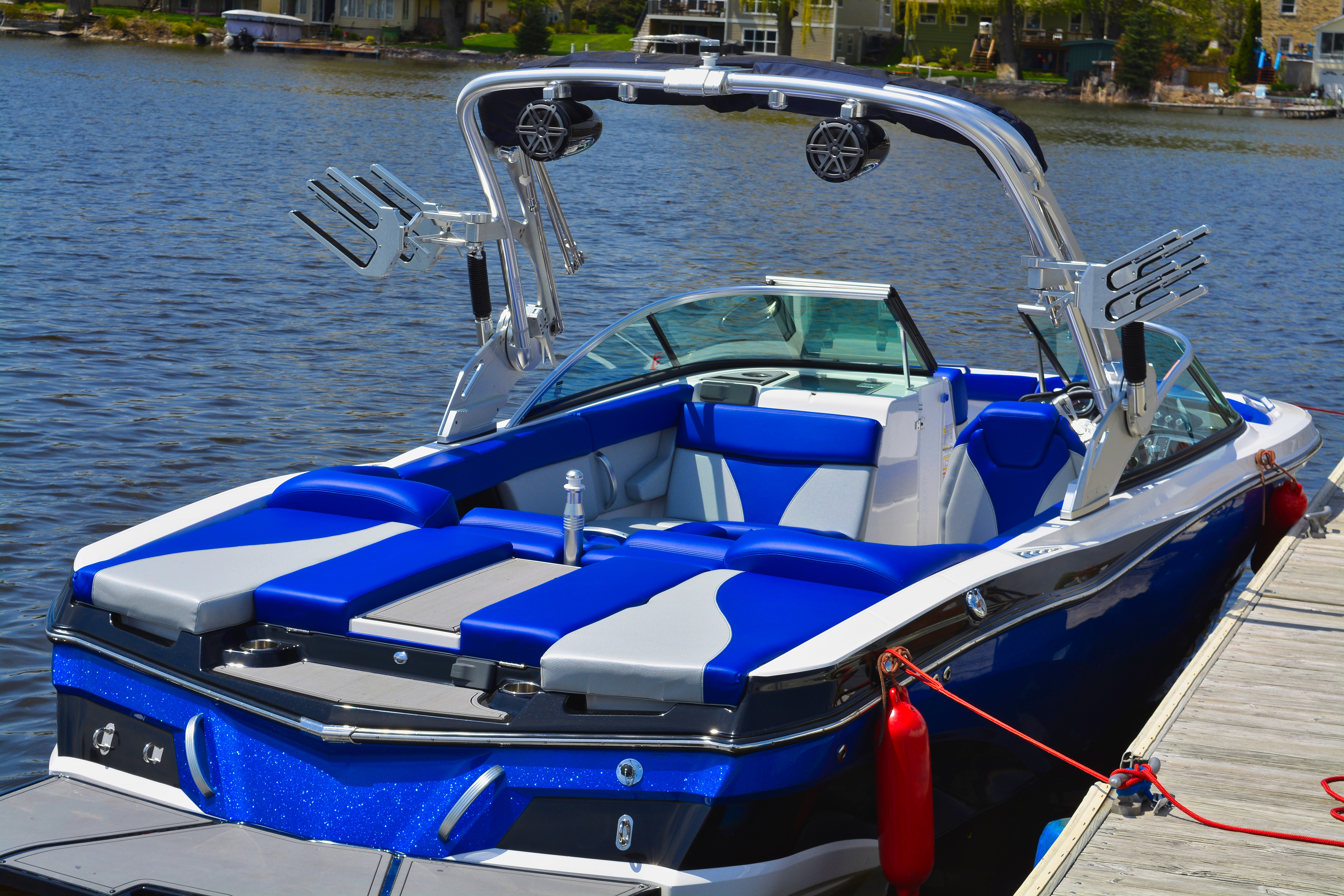
Like many other insurance policies, boat insurance can fall into a few categories: liability, uninsured boater, and collision/comprehensive coverages. While there are other options and add-ons depending on your boat's equipment or other needs, these primary categories are an excellent place to start.
Liability Insurance
Liability insurance is the minimum standard most states, banks, and marinas require. This type of coverage protects you in case of bodily injury or property damage while operating your watercraft.
While recommendations vary widely, some boat insurance professionals recommend buying at least $100,000 in liability insurance. However, the recommended amount of liability coverage can be even higher if you have a fast, powerful boat that is both riskier and can cause more damage.
Uninsured Boater
With uninsured or underinsured motorist coverage, you have protection to cover injuries and damages for you or your passengers if the other boater has no (or not enough) insurance on their boat.
This is crucial coverage to help you avoid significant out-of-pocket costs when recovering from an accident caused by another boater.
Collision and Comprehensive Coverage
Collision and comprehensive coverages depend on the value of your boat. These policies cover events out of your control, like vandalism, fires, winds that cause boat damage, theft, and other weather-related damage.
4. How Much Boat Insurance Do I Need?
As we mentioned earlier, some states have minimum requirements for liability insurance coverage. Check with your state government or a provider like Progressive boat insurance.
Beyond that, again, your risk tolerance and other factors may determine how much insurance you need. These factors can include the boat's value, motor size, and age.
Like other vehicles, high-performance boats often command a higher level of coverage to compensate for the amount of damage they can inflict.
5. What Does Boat Insurance Cover?
We touched on three primary types of insurance for boats, but let's talk more about what it covers. Common boat insurance coverages include:
- Property damage liability—This type of insurance covers the cost of damages to someone else's property if you cause an accident.
- Collision damage—As an optional coverage, collision policies pay the cost of repairing or replacing your boat or PWC minus the amount of your deductible.
- Bodily injury liability—This liability coverage pays for the costs associated with injuries to other people involved if you are found legally responsible for a boating accident.
- Hull coverage—Hull insurance covers any physical damage to your boat, generally including trailers, equipment, motors, and accessories. Typical claims include fire and windstorm damage.
- Fuel spill liability—This is typically a separate policy that covers any fines from an accident involving a fuel spill.
Work with your insurance provider to determine what you need covered and how to cover it with the right policies.
6. What is the Best Type of Boat Insurance?

The best type of boat insurance is coverage that adequately meets your legal and contractual obligations and allows you to feel comfortable about your risk exposure.
Because each situation differs, you must determine what coverage factors matter most to you and your family. Spend time researching your options and speak with multiple insurance brokers or agencies.
7. Is Boat Insurance Expensive?
As with almost anything you purchase, the more research and price comparison you do, the more likely you are to find the boat insurance quote that is right for you.
Here are some tips to get your money's worth and keep your costs down.
Only Buy What You Need
There are many options for marine insurance, and many of these policies are custom-written. Know what you need to avoid paying for unnecessary and costly features you don't need.
Agreed Value vs. Cash Value
In an agreed value policy, you receive a pre-determined value for the vessel in the event of a total covered loss. With agreed value, the insured and insurer agree on the boat's value upfront.
Most agents recommend this option for a new or late-model boat. As the boat ages, look to switch to a cash value option to save on premiums.
Take a Boater Safety Course
Almost all insurers offer a discount for boaters who have recently completed an approved boater safety course.
Take an in-person class or get your boat safety certification online. Then, check with your insurance agent to see if they offer a discount.
Spend on Safety Gear
Insurance companies may cut you an additional discount for having extra safety features onboard your vessel. Check with your insurance agent to see if you qualify for additional savings.
8. How Much Does Boat Insurance Cost?
According to Progressive, the cost of boat insurance generally ranges from $277 to $753 per year. Depending on the type of boat, the boat's location, and your profile, your insurance costs may be higher or lower.
When pricing policies, a good rule of thumb is for your annual premiums to land around 1.5% of the current market value of your boat.
9. Who Offers the Best Boat Insurance Rates?
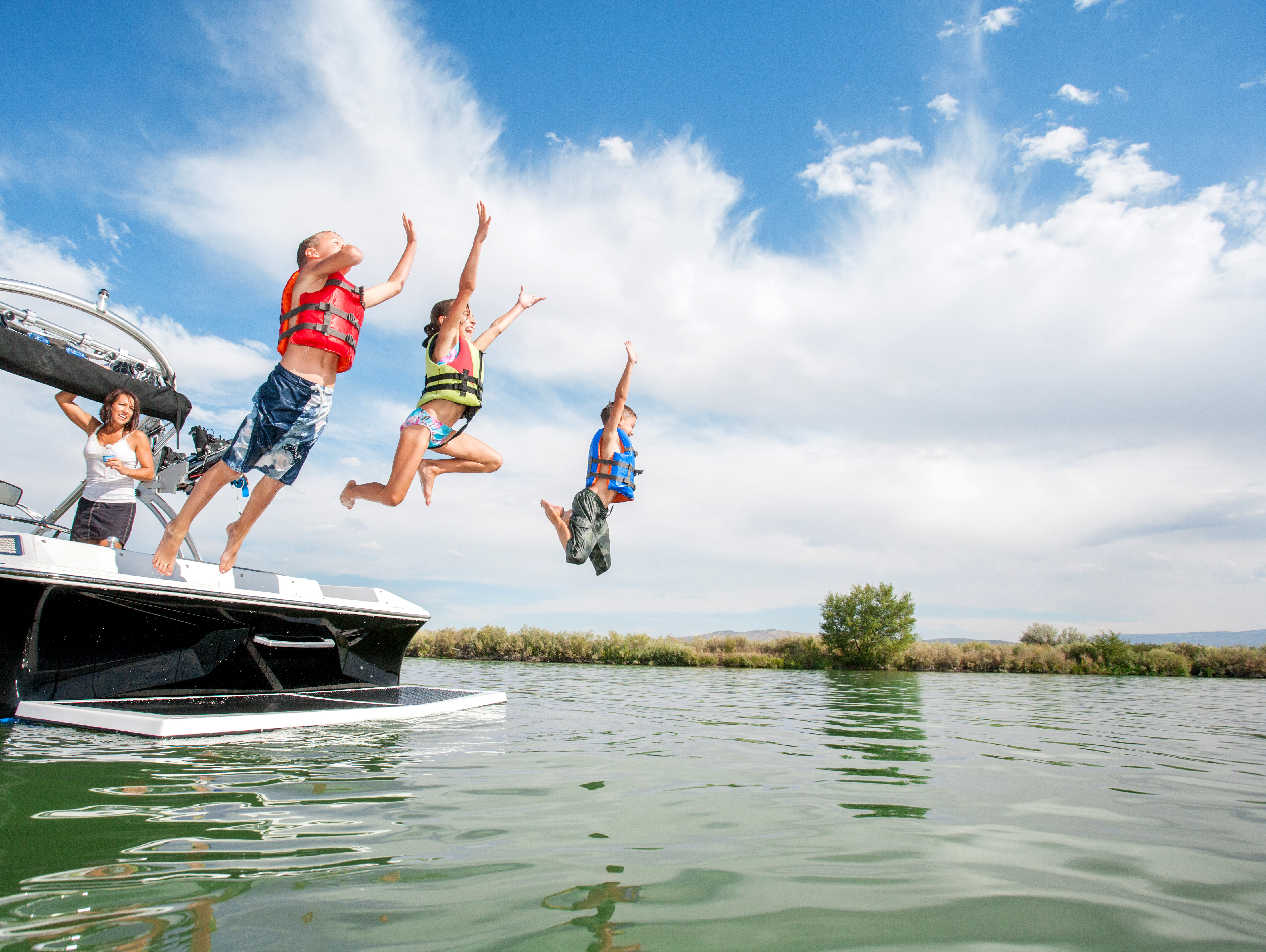
Many insurance companies offer competitive boat insurance rates. Progressive is often at the top of annual lists, but shop around to ensure you get the information you need to make an informed decision based on quality, coverage, and cost.
You can also speak with other boaters to find out what insurance features are important to them and why. Do your homework by researching what different companies offer to make the best decision for your needs.

Protect Your Boat and Stay Safe on the Water
Boat insurance helps protect your boat and other boaters. However, staying safe on the water requires the right knowledge to operate your watercraft safely.
In addition to finding the best insurance coverage for your boat, make sure you've taken a boater safety course! Our Boat-Ed courses are state-approved and Canada Transport-approved and completely online, making it easy to learn and conveniently take your exam from anywhere.
Find the course for your state or choose our course for Canadian boaters and prepare for the water this season.
Originally published June 26, 2018. Content updated January 11, 2024.

